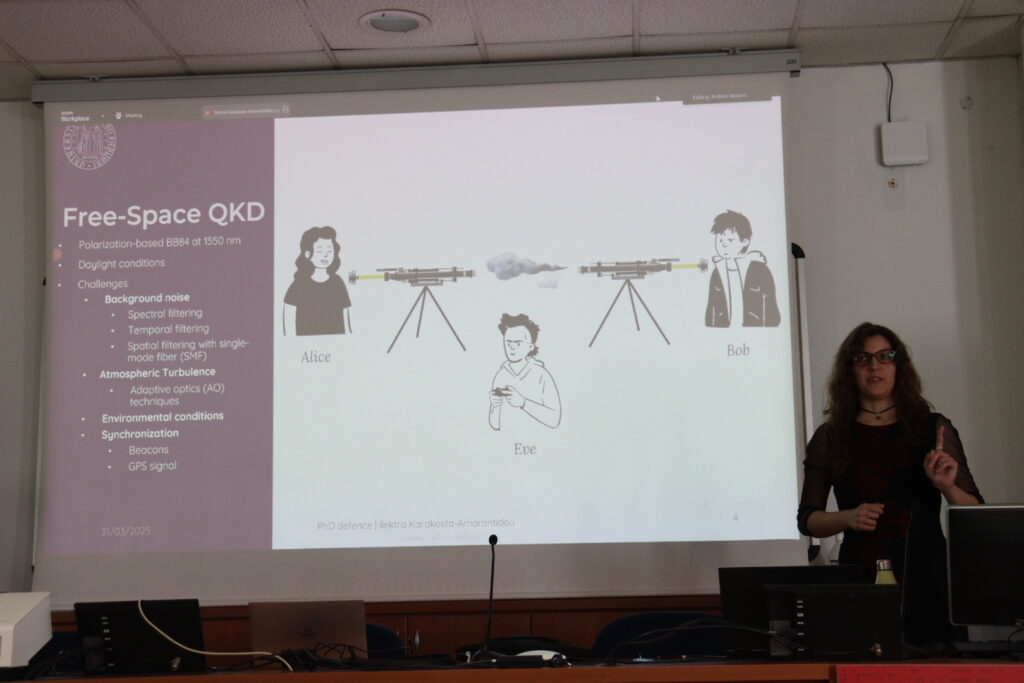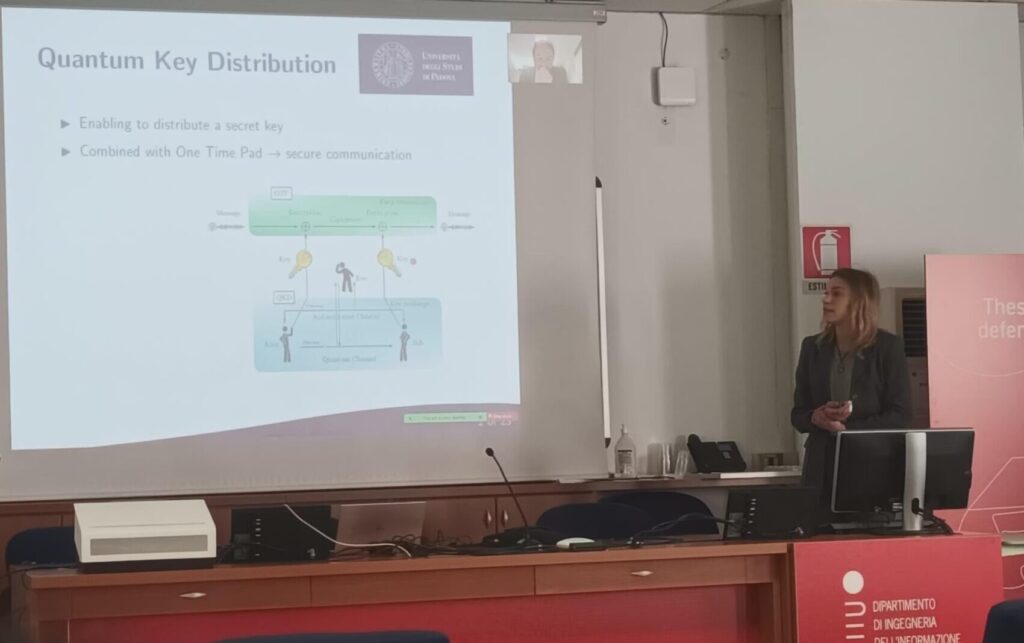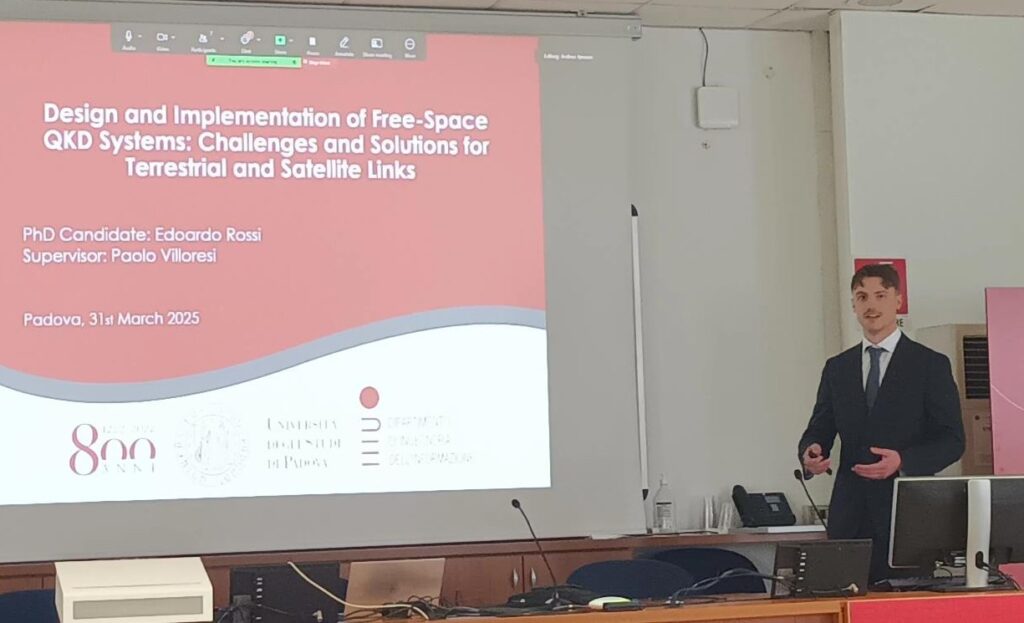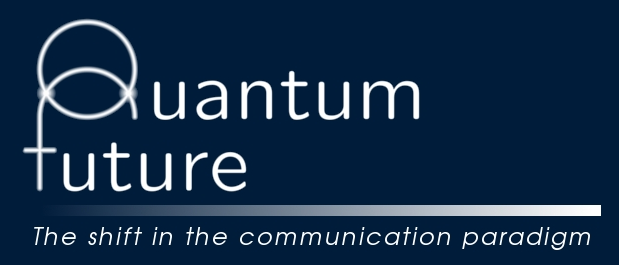On 31st of March 2025, three previous PhD students from the QuantumFuture group defended their theses in front of an evaluation committee. We would like to extend our congratulations to the new graduated PhDs: Dr. Ilektra Karakosta-Amarantidou, Dr. Elisa Bazzani, and Dr. Edoardo Rossi.

Dr. Ilektra Karakosta-Amarantidou presented her thesis, titled “Advanced Quantum Communication in Free-Space”, which addresses the challenges of free-space quantum communication, particularly for polarization-based Quantum Key Distribution (QKD). She developed a simulation tool to model various free-space link scenarios (horizontal, uplink, and downlink) for a balloon-based quantum network, contributed on a setup to perform atmospheric sensing with different techniques, and implemented a channel emulator for testing correction systems in the laboratory. Her research also includes practical demonstrations of QKD over short urban free-space links, preliminary testing of a long-range free-space receiver based on adaptive optics, and characterization of the polarization transformation induced by a telescope for satellite quantum communication.
Dr. Elisa Bazzani presented her thesis, titled “Advanced Experimental Methods for Quantum Communication”, where she presented advances quantum communication by improving Quantum Key Distribution (QKD) through innovative devices and experimental methods. Her thesis introduces a time-bin optical encoder that integrates state and decoy preparation for fiber-based QKD, achieving exceptionally low error rates. To extend QKD to satellite links, the work investigates Hong-Ou-Mandel (HOM) interference between ground-based and satellite-reflected photons, addressing challenges like Doppler shifts and timing synchronization. Her thesis also develops a heralded single-photon source using nonlinear waveguides for HOM experiments and standalone QKD use. Lastly, it analyzes a scalable optical phased array system for long-range and deep-space communications, designed for efficiency and low power. Together, these contributions advance secure global quantum communication and offer solutions for low-photon classical communication.


Dr. Edoardo Rossi presented his thesis, titled “Design and Implementation of Free-Space QKD Systems: Challenges and Solutions for Terrestrial and Satellite Links”. His doctoral thesis contributes to the advancement of QKD technology by addressing key challenges in the implementation of free-space quantum communication system across varying distances and architectures. A major focus of his research is the development of a remote transmitter designed for long-distance free-space quantum links. His thesis presents experimental results on turbulence characterization and single-mode fibre coupling efficiency by means of adaptive optics system. The impact of adaptive optics on overall system efficiency and its potential to improve key distribution rates over extended distances is thoroughly analyzed.
